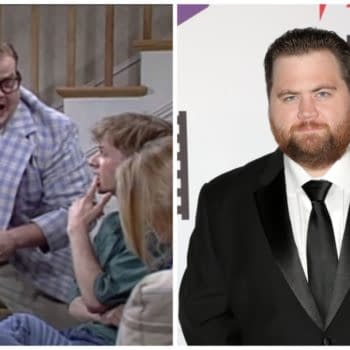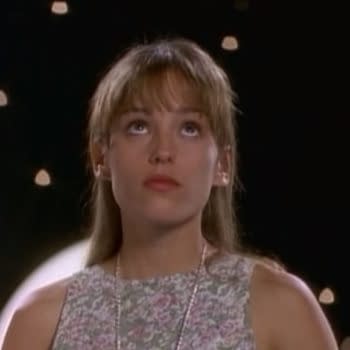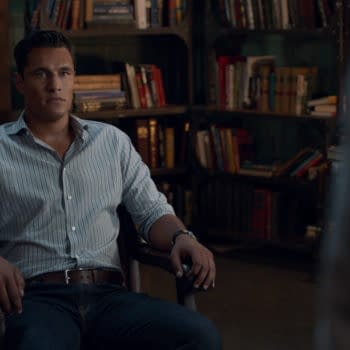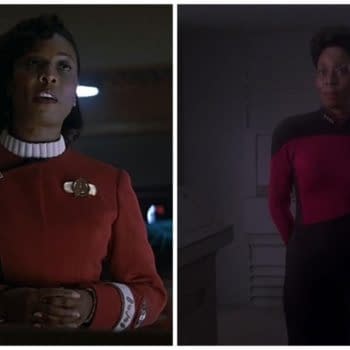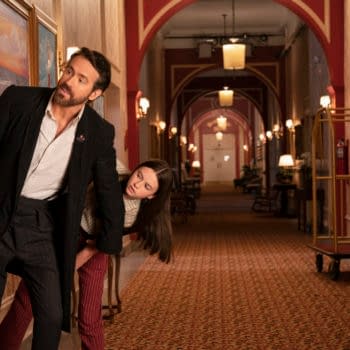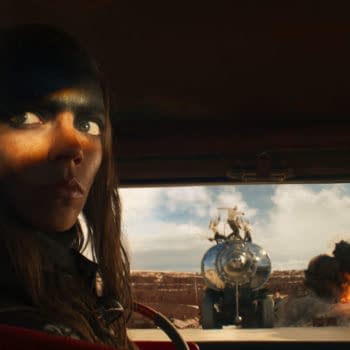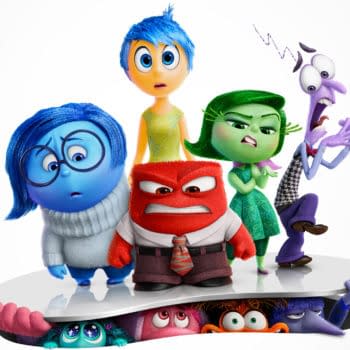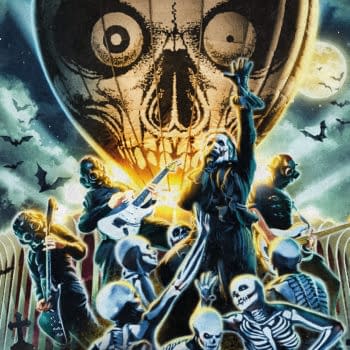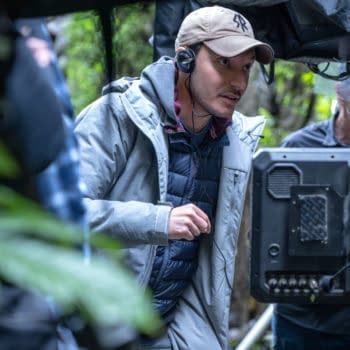Posted in: Documentary, Exclusive, Interview, Movies | Tagged: Abramorama, Dan Pallotta, documentary, edward norton, exclusive, interview, jake gyllenhaal, maggie gyllenhaal, Stephen Gyllenhaal, Uncharitable
Uncharitable Director on Finding Renewed Purpose in Documentary
Director Stephen Gyllenhaal talks to Bleeding Cool about his latest documentary in Abramorama's Uncharitable, Dan Pallotta's journey & more.
Stephen Gyllenhaal was already ready to call it a career after over four decades of work in directing, starting from his shorts in Exit 10 and Best Horse in 1979 before finding his way to network television on ABC Afterschool Specials and CBS Afternoon Playhouse in the early 80s. He would make his feature debut in 1985's Certain Fury for New World Pictures. While he's primarily built a career as a TV director, he's had time to do the occasional film with over 50 projects to his name, including Showtime's Paris Trout (1991), Gramercy's A Dangerous Woman (1993), and CBS' Living with the Dead (2002). The father of two Oscar-nominated actors in Jake and Maggie Gyllenhaal, Stephen's final TV series to date was Hulu's Shut Eye before moving on to documentaries in 2022's The Bond & 2023's Uncharitable.
Gyllenhaal spoke to Bleeding Cool about the documentary based on the Dan Pallotta book of the same name, gaining traction as a TED Talk, asking important questions like: What if everything we've been taught about charitable giving is wrong? What if it's undermining the very causes we love the most? "Uncharitable" is a one-of-a-kind movie that shows how our charitable traditions and prejudices have suffocated the charitable sector and prevented it from leading the charge to change the world truly.
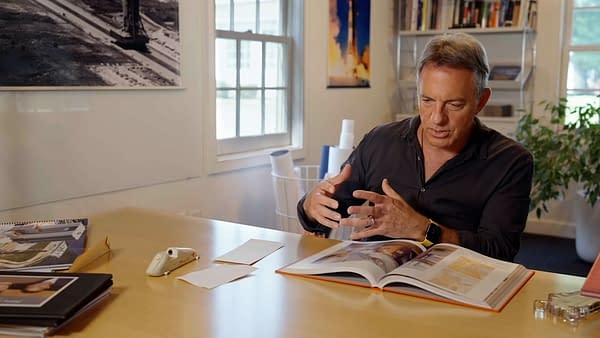
Uncharitable: Reshaping the Narrative on Charities
Bleeding Cool: What's the inspiration behind 'Uncharitable?'
Gyllenhaal: I knew Dan a long time ago and have been friends with him almost forever as he was coming up with the AIDS [LifeCycle bike] rides, and I was coming up in Hollywood. We didn't pay much attention to each other's work. We were just friends, and we loved to hang out and talk for hours on end. If you're doing stuff like we were, you feel you're screwing up half the time, so they don't want to discuss it. I never did the AIDS rides. I was raising two kids, who turned out okay, I guess [laughs].
I wasn't doing that, and then I did a movie called 'In Utero' [2015], which is all about the science from conception to birth and has been impactful in the prenatal and perinatal world…the pregnancy world and became an important shifter of thinking. Dan had seen it and said, "Do you want to make a movie about what happened to me?" As I had lunch with him, because he lived in Boston at that point and I was living in L.A., I didn't even know about the TED talk or his book. We're just friends, and I never cared what we did.
He explained the TED talk to me, and he said, "You should take a look at it and read the book." I wasn't sure even then when we had lunch if there was a movie until he told me about Jason Russell and Steven Nardizzi. I began to see this systemic problem, which was interesting from an intellectual perspective, but more importantly, they were cool, important, and dramatic stories. I didn't want to make a documentary per se. I wanted to make a movie all along. I call it a movie because I want to make something that has an intellectual impact and drives the narrative forward from an intellectual perspective. The most important thing for me in a movie is the emotional narrative. That was in those stories. To accomplish all that took seven years and a long time to get it to work, but that's what it took.
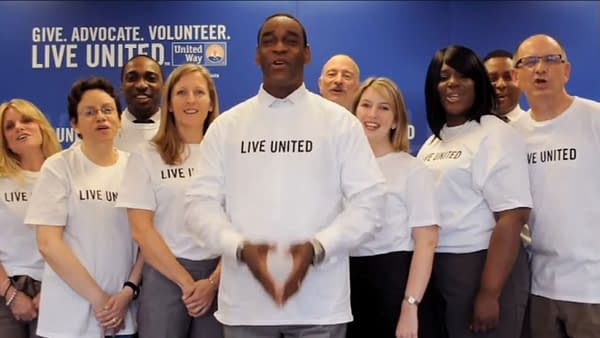
How does 'Uncharitable' compare to your other work? Was it something you worked on in between projects?
I'm retired from television and movies. I have a young son now, and I've been away from home for so long with my other kids that I didn't want to keep going to Vancouver, Atlanta, or wherever you go because you didn't do much in L.A. nowadays. I'm semi-retired, but when I began to get entangled with this, I didn't think I would be so difficult or become so passionate. I stopped and founded a psychological institute because I'm into what happens to human beings and everything else. That's more of why I went into movies than anything else. Although I got more as I did films, cinema and the impact of movies moved me more and more…to answer your question. This was a brutal movie to make. It was hard to figure out how to get out into the world because you don't make a movie not to have it be seen. If you're a tree in the forest, you want some people to hear it fall [laughs].
My experience in film profoundly helped me make this movie. I'm proud of [Uncharitable]. It's by far the most important thing I've done, and it's had more impact than anything else. It's the upside of documentaries. The downside is getting people to see it. First, I had to make a movie worth watching, and it took seven years and everything I knew to make it feel good enough to get out into the world. I finished it about a week ago because I was unhappy with it. You haven't seen the finished movie, exactly.
It's close to what the movie is. God is in the details, the devil is in the details, and it's true with movies, too. All the sound works on the film, the final music, and many things are finally in place. My years of experience, which go back to when I was 20 when I started, helped shape this. Every movie has its problems, and the more experience you have, the looser you can be to figure out how to do it. I had great people around me to make it, but the marketing of it has been engaging because movies at first should be seen in theaters as much as possible. That communal experience, the screen size, the sound, and being in a place with other people is essential. I will fight until they take every theater away to keep it going. Every other film director and the DGA, the Directors Guild, and all of that, to make that a not just an experience, because the screen is big and all that, but because you're with other people and that is a real problem.
We have nothing. There's been an epidemic of loneliness since the pandemic. Movies are a place to go, and I'm going to be at all the screenings in New York, L.A., and all the screenings & Q&As to be there with people. I will say, "Everyone, before we start, try to talk to each other. Just connect." I talk to everyone now, and what we're doing is we're going to put the movie in theaters, and we're going to make it accessible. You can get a ticket for free anywhere in the world. The movie was made entirely with donations, and this is, you know, people have the charitable sector I've been reaching out to is making tickets free for everybody. Charities are about helping people in need. The wealthy, middle class, and poor must understand this incredible transformative power of charity. That's what I've discovered, making this movie more than anything else.
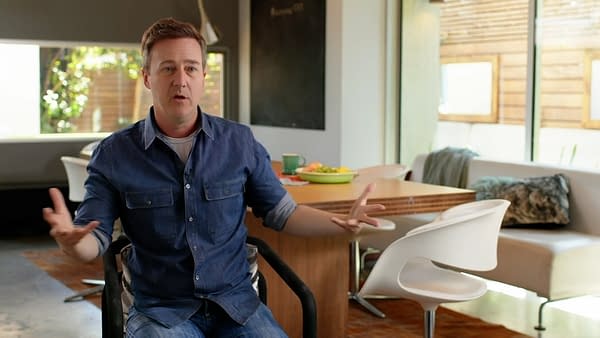
Are the ideas behind 'Uncharitable' enough to be enclosed within a single film? Are there plans to expand beyond?
When I started, I had no plan. As I've gone on, the plan has gotten more precise. Being in this media field, television, and movies has brought me to a place where this movie can be the beginning of a massive shift. If you take the charitable sector, which is a huge industry, and you free it, I associate this movie with the Declaration of Independence, which was drafted in 1776. It's taken hundreds [of years], not that it is perfect or that a bunch of white guys getting together with wigs is solving everything. They did lay the groundwork for something that has been efflorescence ever since.
The strategy here is first to get the movie out there in theaters as much as possible and get the tickets for free. When you see the movie, you donate for other people to see the film. We built a forest fire to clean up things so people understand it next. Also, there's the uncharitable pledge, which we're trying to get everyone to sign and takes the five discriminations in the movie and transforms them into the five things that can free the charitable sector. You could go to a nearby theater and say, "I want to show this movie." You reach out to us, and our team will put together with Abramorama, a theater in your area. We will then use donations to buy it out or get you some tickets. They'll connect you with charities in your area to help fill it. We have another theater already in 34 cities. It's about donating this movie to everyone with the idea that after they've seen the movie, they'll donate for others to see it.
That's the strategy, which is a radical approach to distribution. That's taking place because I've been in the movie business my whole life, going, "Ha, this is the way now to do it." The next thing is as the movie progresses and we get through the strike; more celebrities will come on board and be involved. I know many of them, and they're all on strike now, but that will shift. I want to take that, and we'll create a TV show that pushes this further. After that, the TV show will be available to return to events like the AIDS Rides. I see it as Woodstock meets the AIDS Rides and 'Burning Man.' You don't want to talk about too much right now, but it is a celebration with people raising huge amounts of money for various charities. More importantly, it's community.
It's coming, people having people come back together again. There's a long target with realistic pieces that will turn this sector around and then, in the process, turn that dialog around in this country because charity is nonpartisan. Many of my donors in this movie are conservatives, progressives, and many people in between. Charity is something that everyone embraces, and I would like to gently bring kindness back into our political dialog and in the for-profit sector. That's not my job. That will be the 10 million people in the sector ready to do it. It's way beyond a movie.
Abramorama's Uncharitable, which also features interviews with Nardizzi, Dorri McWhorter (CEO of YMCA of Chicago), Scott Harrison (Founder of Charity: Water), Jason Russell (Konni 2012), actor Edward Norton (CrowdRise), and more is available in select theaters nationwide.







